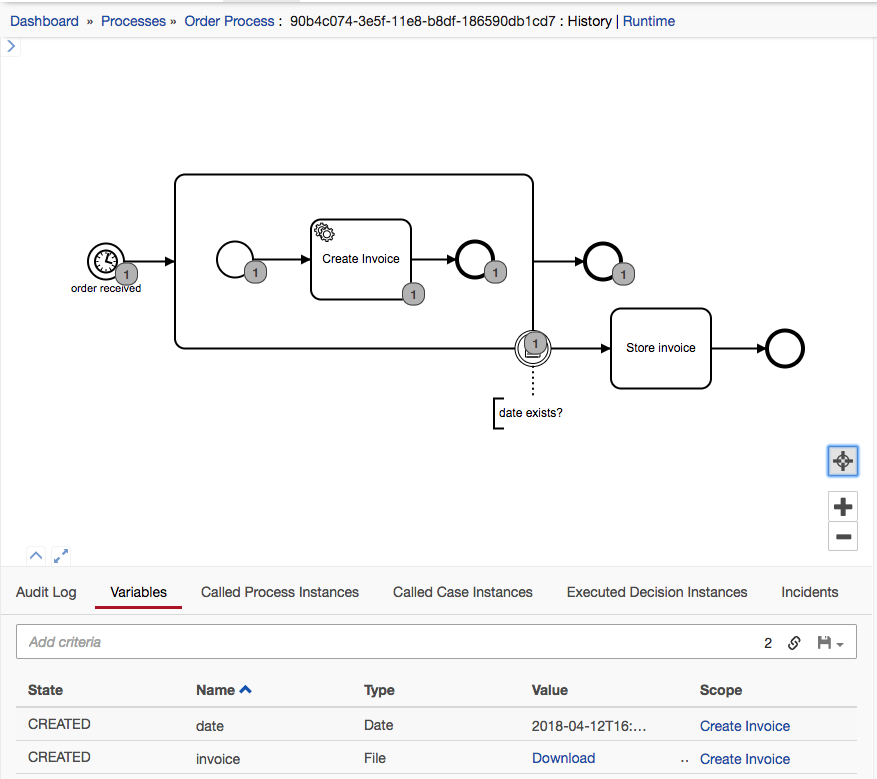We are so excited to announce a new alpha release of camunda-external-task-client-js,
an Node.js module that makes it possible to handle your BPMN Service Tasks.
This release is focused on making it more flexible to handle variables.
It improves setting variables and brings up two major features:
- setting local variables
- support for Date & File typed variables
The following example will illustrate these features and show how they can be used.
Example
1. Setup
- first, make sure to have Camunda running
- download the following model
and deploy it using the Camunda Modeler - create an
invoice.txtfile with some data and place it in the same folder as the script - install camunda-external-task-client-js from npm using:
npm install -s camunda-external-task-client-jsor:
yarn add camunda-external-task-client-js
2. Node.js Service Task Implementation
const {
Client,
logger,
Variables,
File
} = require("camunda-external-task-client-js");
// configuration for the Client:
// - 'baseUrl': url to the Workflow Engine
// - 'logger': utility to automatically log important events
const config = { baseUrl: "https://localhost:8080/engine-rest", use: logger };
// create a Client instance with custom configuration
const client = new Client(config);
// subscribe to the topic: 'invoiceCreator'
client.subscribe("invoiceCreator", async function({ task, taskService }) {
// Put your business logic
// complete the task
const date = new Date();
const invoice = await new File({ localPath: "./invoice.txt" }).load();
const minute = date.getMinutes();
const variables = new Variables().setAll({ invoice, date });
// check if minute is even
if (minute % 2 === 0) {
// for even minutes, store variables in the process scope
await taskService.complete(task, variables);
} else {
// for odd minutes, store variables in the task local scope
await taskService.complete(task, null, variables);
}
});
3. Results
The terminal output should be:
polling
✓ subscribed to topic invoiceCreator
polling
✓ polled 1 tasks
✓ completed task 21d19522-3e4c-11e8-b8df-186590db1cd7
pollingMoreover, the added variables should be available in Cockpit in the history view of the process instance:

Documentation & More Detailed Examples
This example illustrates a basic usage of the new alpha release of camunda-external-task-client-js.
To find out more about this release, you can check out the documentation
or get the example running.
Feedback
Your feedback is extremely important, so don’t hesitate to share it with us by:
- Reaching out to us via our forums
- Creating an issue on GitHub
- Tweeting us on @Camunda
